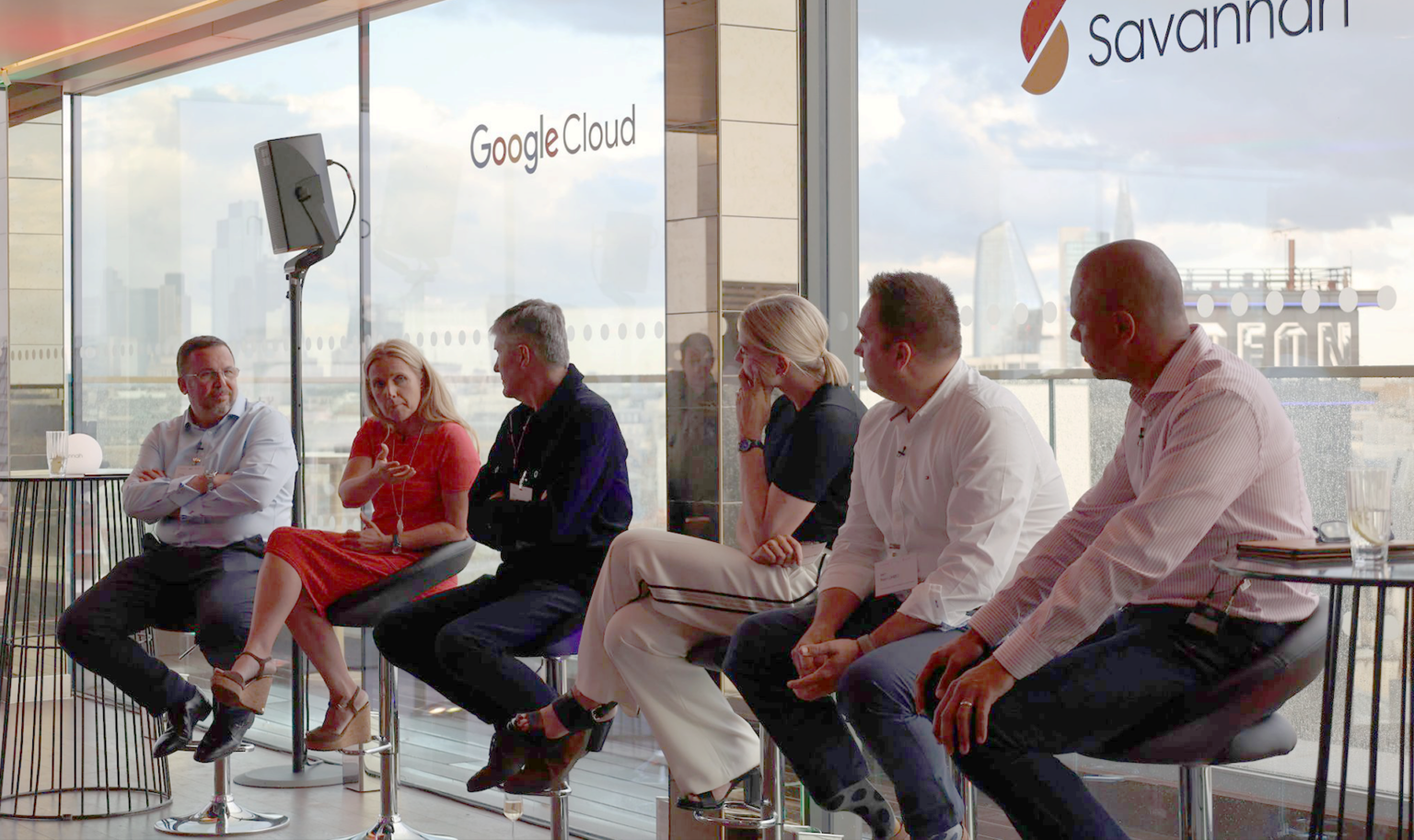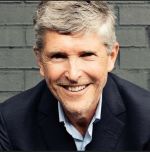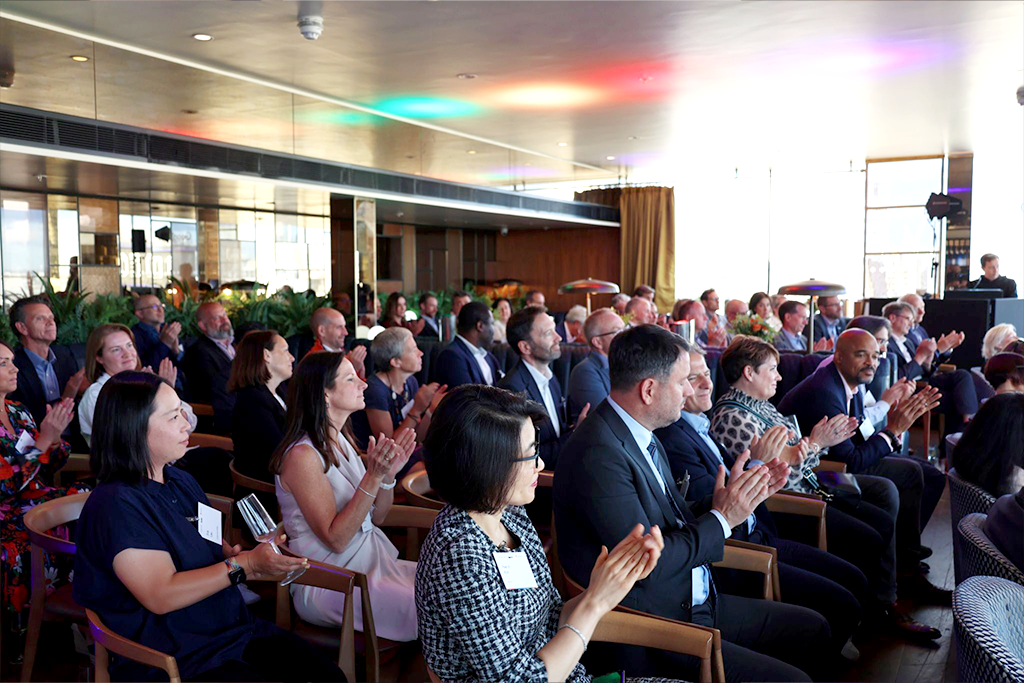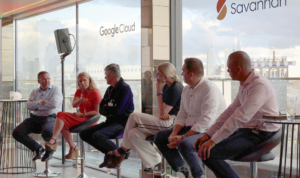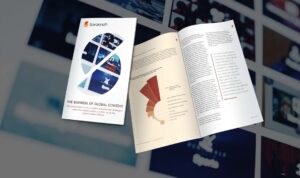At a unique event in collaboration with Google Cloud, Savannah Group brought together a panel of sporting leaders to discuss parallels and lessons for business from succeeding – and failing – at a high-performance level.
At Savannah Group, we see many parallels between sporting leadership and executive leadership in the corporate world. To explore this in detail, we assembled a diverse panel of leaders from high-performance sport including Vicky Gosling OBE, CEO of GB Snowsport, Nick Fry, chairman of McLaren Applied, Kate Richardson-Walsh OBE, former captain of the Great Britain and England hockey teams and Iain Nairn MBE, former England Physical Disability cricket team captain. From vision setting to culture, via diversity and trust, we examined a number of principles for winning in sport and their applicability in a business environment.
Strategy and Goal Setting
Savannah’s Chris Donkin, who moderated the panel with Google Cloud’s Paul Husbands, opened the discussion by quoting the celebrated former boss of Procter & Gamble, A.G. Lafley: “Strategy is about making specific choices to win.” In sport, as in business, it is not simply about defining a clear vision and competitive proposition – aligning the team behind that goal is equally important.
This has become more difficult in a post-Covid age in which teams are more likely to be at least partly remote, with colleagues located around the country or even world. Iain Nairn MBE, who captained the England Physical Disability cricket team, was met with this challenge way before anybody had heard of Covid-19, when he joined the team in 2012, shortly after its creation.
“It was a new team and a new environment for a lot of us but because we were very disparate geographically around the country, trying to pull that team together was really difficult,” said Nairn. “We only met once a month and that was when remote collaboration was even harder than it is today. What helped us through that was the greater goal that we aligned around, not only to advance disability sport and develop that story around the world, but also to win.
“It came down to common goal setting. We all felt the pride of wearing the three lions. One of the greatest things is to represent your country in an international tournament. Sharing our simple goals helped pull everyone together. But it requires your whole team to buy in. I wasn’t an enforcer. I was a soft leader that tried to persuade and create an environment where people support people.” Iain’s team went on to win the first Physical Disability Cricket tournament in 2015.
Objective Decision-Making and Data
While agreeing the importance of setting out a clear strategy and goals, the panellists also noted the importance of data to inform those choices. In no sport is that more apparent than Formula One. Nick Fry was famously the CEO of a Honda Formula One team which finished ninth out of 11 in 2008 before Honda pulled out of the sport amidst the global financial crisis. Fry and team principal Ross Brawn bought the team for £1 before winning the World Championship as Brawn GP in 2009. Data played a big part in this extraordinary feat, which entered Fry and Brawn into the sporting history books.
“Formula One probably has more data than every other sport combined,” said Fry, who is now chairman of McLaren Applied. “We are capable, in theory, of looking in real time at about 15,000 data streams from the car. Going into a Grand Prix an elite team will have probably analysed up to 30,000 strategies for the race, with numerous iterations and simulations of not just your own performance but every other team’s too. The level of preparation that goes on is beyond belief.”
Rebranded as Mercedes-AMG Petronas after being acquired by Mercedes-Benz at the end of 2009, the team hired a mathematician who had worked with George Lucas on the Star Wars movies. “We worked assiduously with his team to work out what data the engineers on the pit needed to look at and at what stage in the race,” Fry added. “That really enables you to then make decisions in milliseconds — and you have to. It’s incredibly powerful if you can decide what parts of the data you want to use. The potential for business is enormous.”
People, Diversity and Culture
While data is a key part of the toolkit for enabling athletes to perform to the best of their ability, they also need to feel empowered, individually and as a team, with everybody aligned around a strong people-led culture. Vicky Gosling OBE, CEO of GB Snowsport, the national governing body for skiing and snowboarding which achieved its goal of putting more British athletes on snow sport podiums than ever before, maintains a mantra of ‘Athletes First’.
“Having come from a mission-oriented background, the mission has to be front and centre,” says Gosling, who previously served in the Royal Air Force. “But how do you then make sure they’re all aligned to that vision? It’s creating a sense of purpose amongst them but also empowering and enabling them to get there. We do that by giving them a toolkit, whether it’s nutrition, strength and conditioning, data and technology or even their life skills for after sport.
“Beyond that it’s vital to take away the day-to-day distractions. You give them the best facilities you possibly can to get them to the best prepared state they can be in, but then leave them to make the critical judgement calls which, invariably, they will get right. A strong sense of purpose is critical because you want to inspire people to follow you, not require them to follow you. The only way to do that is by ensuring you’ve got their trust and confidence.”
Managing Pressure
Pressure is something everybody has to deal with at some stage in their career. Knowing how to manage and even thrive through it is often what defines the greatest winners in any field. The panellists agreed training is the best way to both help emulate pressure and be ready for it when it arrives in a real-life scenario. Having led a team of amateur sportsmen into a high-profile professional cricket tournament on a world stage, Iain Nairn is well versed in helping team members deal with anxiety from pressure.
“None of us had been in an international tournament before and some of the younger members of the team had never even been away from mum and dad,” he said. “To come away from sunny Hampshire and land in Bangladesh, it was a very different experience for them. It took us a lot to deal with the mental health aspects of being on tour. You’re under a lot of pressure. You put yourselves under a lot of pressure because you want to perform.
“Having been through stresses and challenges in my own life, I was able to communicate with and help some of the younger members get through that. When you’re living in those little bubbles of tournaments, it’s very easy to get carried away with what’s going on. Managing your team’s anxieties plays a big factor in performance.”
Learning From Failure
Every successful athlete will testify to the words of legendary basketball player Michael Jordan: “To learn to succeed, you must first learn to fail.” Yet this can too often be overlooked in the business world, where failure is less tolerated. All of the panellists agreed that failure was part of their journey to success, but as somebody leading a team that is not performing well, how do you manage them in a way that they will learn and keep on a positive track? Nick Fry advised business leaders to keep firmly focused on their own vision and strategy.
“You have to stick to your game with your team of people and play to your strengths,” he said. “I started in 2002 and it took us about five years to win our first race. Then it took us about the same timeframe again to win the championship. The main thing, especially when you’re not doing very well, is giving people physical evidence of why things are going to get better.
Athletes need to feel empowered, individually and as a team, with everybody aligned around a strong people-led culture
“In many companies, there’s a defined mission and a lot of nice words about it, but people will only believe so much. That means explaining why we will get better next year. Because we’ve hired these particular people, for instance, or invested in this equipment. Providing those intermediary steps with proof points as to why you’re going to get better is what keeps people onside, engaged and believing you’re going to win.”
Building Trust and Respect
Not only learning from mistakes but also owning them is one way of building trust in a team, which was another key theme throughout the panel discussion. Even with the best facilities, technology and data, a team will not succeed unless its members trust and respect each other as well as their coaches. Former captain of the Great Britain and England hockey teams Kate Richardson-Walsh OBE positioned trust and respect at the very core of her leadership style.
“I was honest when I failed,” said Richardson-Walsh, who is Britain’s most capped hockey player. “That built trust and respect and meant my team also allowed me to challenge them because they knew I’d never ask anything of them that I wouldn’t ask of myself. I always tried to aim for authenticity. If you don’t set an example as a leader, why will your team follow you?
“I started off being quite a shouty leader but then got a bit less shouty as I got older and realised that while sometimes the team needs a hard word and directness, more often than not it was about building relationships, developing trust and respect and then sharing responsibility. Trust and respect under pressure creates bonds that are going to help you become unbreakable as a team, and so it’s something that needs to be fostered.”
We thank our exceptional panellists for their valuable contributions to our Sporting Leadership event. In a series of articles in the coming weeks, we will delve deeper into their insights to reveal further parallels between the leadership disciplines and techniques that enable success at a high-performance sport level, and how to win in the business world.

